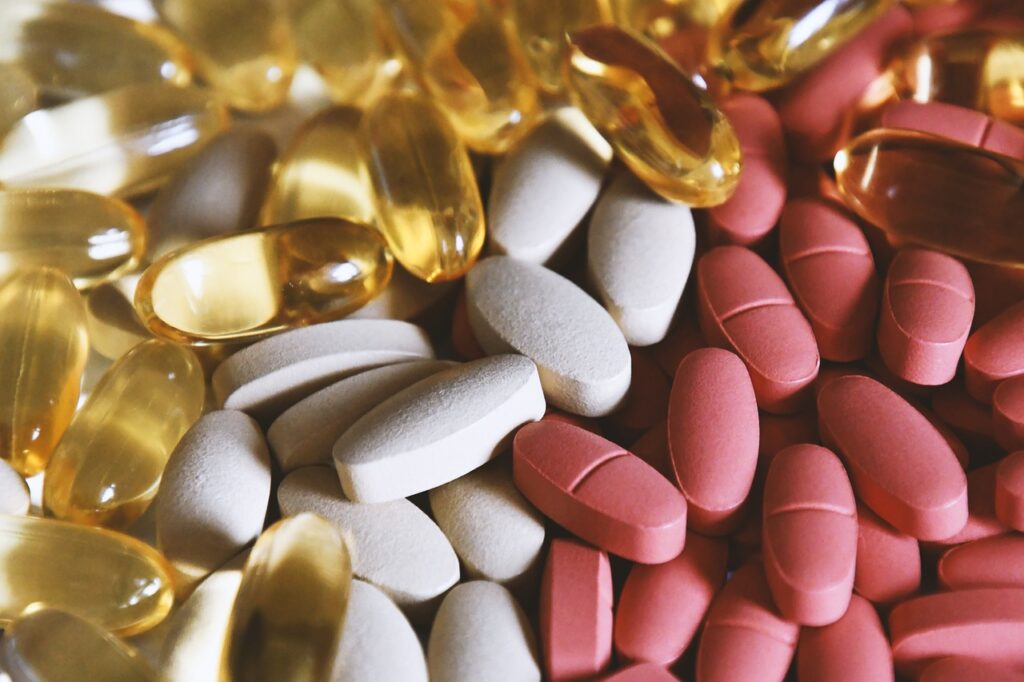Supplements for PCOS: Enhancing Wellness Beyond Diet
By Lauren Licatesi, MS, RD and Edited By Laura Cipullo, RD, CDCES, CEDS-S
Among women of reproductive age, polycystic ovarian syndrome also known as PCOS, is a prevalent hormonal condition. Although dietary modifications and physical activity are frequently used in the management of PCOS, certain supplements may also be able to reduce symptoms or address underlying problems. Before beginning any new supplement regimine, speak with your medical doctor to ensure there are no negative or cross interactions with other medications and or supplements you take.
Six Supplements Commonly used by Individuals with PCOS:
Inositol: May decrease elevated androgens associated with PCOS.
There are two different types, known as D-chiro- and myo-inositol. Did you know this supplement is often referred to as Vitamin B8, but it’s not an actual vitamin? Inositol is a type of sugar shown to help women diagnosed with PCOS, lower their insulin resistance. In addition, research shows that inositol can help reduce the commonly elevated levels of serum total and free testosterone plus androstenedione.
Berberine: May help with regular menstruation to increase your chance of pregnancy.
This molecule can be found in a variety of plants such as European barberry, goldenseal, goldthread, philodendron, and tree turmeric. Research suggests taking Berberine may improve menstrual patterns in women with infertility caused by PCOS. The chronic anovulation may cease and women may regain regular menses and ovulation as estrogen increases and insulin resistance decreases. In one study of women reccivning in vitro fertility treatments with PCOS, berberine proved to be beneficial in improving pregnancy rates and the associated metabolic parameters (fasting plasma glucose, fasting insulin, and insulin resistance), lowering the risk of ovarian hyperstimulation syndrome in a similar manner to metformin, and allowing the reduction of the total FSH doses per IVF cycle.
Vitamin D: Of course, a vitamin to reverse the common deficiency.
Vitamin D deficiency is common in women with PCOS affecting about 67-85% of this population. The immune system, insulin sensitivity, and even overall health all depend Vitamin D. According to research, vitamin D supplementation can significantly decrease insulin resistance and have beneficial effects on total testosterone, sex hormone-binding globulin, free androgen index, high-sensitivity C-reactive protein and total antioxidant capacity levels which can all improve PCOS symptoms. The latest research is recommending Vit D3 rather than Vit D2.
Magnesium: A mineral known to aid in decreasing painful periods.
Research has shown this mineral can help reduce menstrual cramps. Magnesium acts as a muscle relaxant, which can help ease the strong contractions in the uterus that cause cramps and heavy bleeding.
Zinc: A mineral associated with managing acne and hair loss resulting from hormone imbalances.
Zinc can lessen the symptoms of PCOS, such as hair loss, acne, and unwelcome hair growth. Zinc can contribute to desirable hair growth because this mineral is crucial for protein synthesis and cell division, both of which are essential for hair follicle health. Zinc may also help manage acne as it has anti-inflammatory properties, helps to regulate activity of the oil glands and has antimicrobial properties to prevent bacteria growth. Lastly, zinc can help eliminate unwanted hair growth by influencing testosterone levels that create hair follicles.
N-acetylcysteine (NAC): A supplement to fight oxidation.
NAC, the N-acetyl derivative of natural amino acid L-cysteine, is a known antioxidant. The impairment of endothelial function by oxidative stress might result in problems with vascular health. NAC may contribute to overall enhanced cardiovascular health by lowering oxidative stress and improving endothelial function. This is especially crucial for PCOS patients, who may be more susceptible to cardiovascular disorders.
Remember, the effectiveness and response to these supplements vary for everyone. It is essential that the client with PCOS be managed as a wholistically as possible, considering lifestyle factors such as sleep, stress, nutrition exercise and supplementation. Recommended dosages and brands will be discussed with your registered dietitian in your nutrition sessions. Remember, food and lifestyle are always the best first approaches to wholistic wellness.
References:
Farsinejad-Marj, M., Azadbakht, L., Mardanian, F., Saneei, P., & Esmaillzadeh, A. (2020). Clinical and metabolic responses to magnesium supplementation in women with polycystic ovary syndrome. Biological Trace Element Research, 196(2), 349–358. https://doi.org/10.1007/s12011-019-01923-z
Gokosmanoglu, F., Onmez, A., & Ergenç, H. (2020). The relationship between vitamin D deficiency and polycystic ovary syndrome. African Health Sciences, 20(4), 1880–6. https://doi.org/10.4314/ahs.v20i4.45
Ionescu, O.-M., Frincu, F., Mehedintu, A., Plotogea, M., Cirstoiu, M., Petca, A., Varlas, V., & Mehedintu, C. (2023). Berberine—a promising therapeutic approach to polycystic ovary syndrome in infertile/pregnant women. Life, 13(1), 125. https://doi.org/10.3390/life13010125
Liu, J., Su, H., Jin, X., Wang, L., & Huang, J. (2023). The effects of N-acetylcysteine supplement on metabolic parameters in women with polycystic ovary syndrome: A systematic review and meta-analysis. Frontiers in Nutrition, 10. https://doi.org/10.3389/fnut.2023.1209614
Melo, V., Silva, T., Silva, T., Freitas, J., Sacramento, J., Vazquez, M., & Araujo, E. (2022). Omega-3 supplementation in the treatment of polycystic ovary syndrome (PCOS) – a review of Clinical Trials and cohort. Endocrine Regulations, 56(1), 66–79. https://doi.org/10.2478/enr-2022-0008
Merviel, P., James, P., Bouée, S., Le Guillou, M., Rince, C., Nachtergaele, C., & Kerlan, V. (2021). Impact of myo-inositol treatment in women with polycystic ovary syndrome in assisted reproductive technologies. Reproductive Health, 18(1). https://doi.org/10.1186/s12978-021-01073-3
Nasiadek, M., Stragierowicz, J., Klimczak, M., & Kilanowicz, A. (2020a). The role of zinc in selected female reproductive system disorders. Nutrients, 12(8), 2464.







